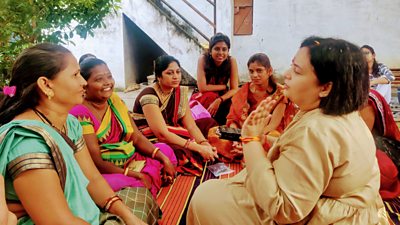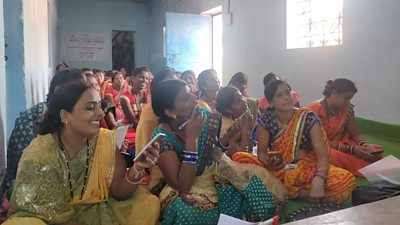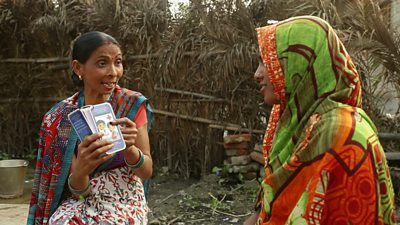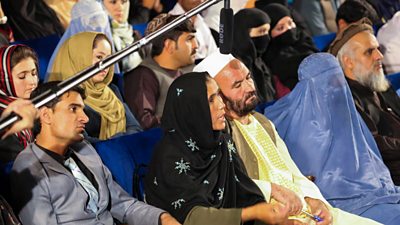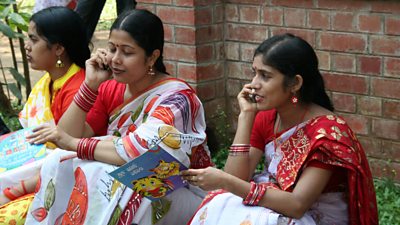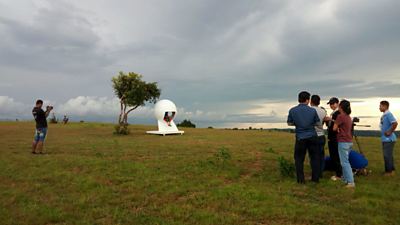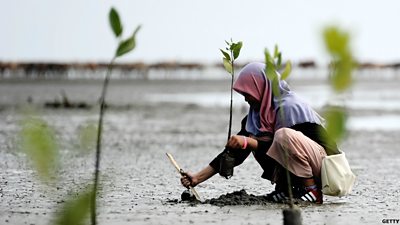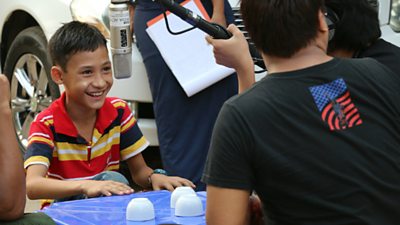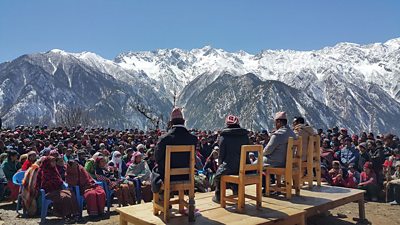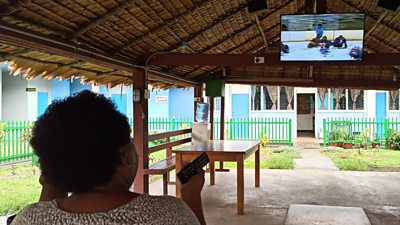Empowering women is critical to social and economic gains for communities, for societies and for women themselves. In our increasingly digital world, technology has a crucial role in addressing the gender divide.
But India’s digital story remains skewed and biased. While use of digital technologies continues to soar, its gender digital divide remains one of the largest in the world. Although wealth and education are the strongest determinants of mobile access and use in India, gender norms have been identified as a critical barrier to women’s digital literacy.
In 2019, ����ý Media Action began work on the Digital Women’s Economic Empowerment (WEE) Project: A Research and Learning Agenda in India, with support from the Bill & Melinda Gates Foundation. Our focus has been on women’s collectives - including self-help groups, farmer producer groups, social enterprises, co-operatives, trade unions and rights-based groups - which show significant promise as a platform for empowerment. Our objective has been to identify if and how digital technology could enhance pathways to women’s empowerment in these collectives, without worsening existing inequalities and gender-based conflict.
In India, with over 11 million self-help groups provide services to more than 138 million households, there is tremendous opportunity in leveraging these trusted social networks, to support women in gaining access to mobile phones and learning how to use them.
The Digital Adoption Proof of Concept (PoC)
As part of the Digital WEE project and building on the results of our , we are designing a transformative use case to reduce the gender digital divide in collectives in India.
Rather than focusing on skills development, which has had little success in India, we are qualitatively exploring with our partner, , whether exposure to targeted social and behaviour change communication can support women in overcoming some of the normative barriers to digital access:
- when delivered by 'digital champions' in women’s self help groups
- using either an IVR or WhatsApp chatbot learning aid
Our aim is to create an enabling environment for women’s increased ownership and meaningful use of mobile phones.
Approach
����ý Media Action is exploring this hypothesis in partnership with Chaitanya WISE and 60 ‘digital champions’, who will engage with more than 600 women in self-help groups supported by Chaitanya WISE in Madhya Pradesh. We are using women centred design techniques to create and user-test the proof of concept, and will optimise it based on research results and system generated data.
Digital learning aids to stimulate discussion and group-based learning
Building on the success of ����ý Media Action’s impactful digital job aid for frontline health workers to use in group contexts (“GupShupPotli”), we are designing:
- IVR-based digital learning aids for digital champions to use with literate women in groups living below the poverty line.
- WhatsApp chatbot based learning aids for digital champions to use with literate women in groups living above the poverty line
The brand and content
We are creating bite-sized video content for the WhatsApp chatbot learning aid and audio content for the IVR learning aid, in recognition of women’s time scarcity and to accommodate short group meetings.
The content aims to increase knowledge and build a compelling case for digital use. It has the potential to change attitudes about the value of investing in mobile phones for women, and to build women’s self-confidence in learning how to use them for meaningful purposes. It is designed to stimulate discussion and peer-learning in groups, and discussions between women, their husbands and with other digital gatekeepers.
We have created a brand for the proof of concept and job aids called Phone Toh Uthaao (Pick up the Phone) which conveys excitement, positivity and ease of use, without the need for formal education or training.
The logo is designed to be simple, relatable and clearly visible on simple smartphones. The colour scheme echoes the saris that many women wear as a uniform in self-help groups in Madhya Pradesh.
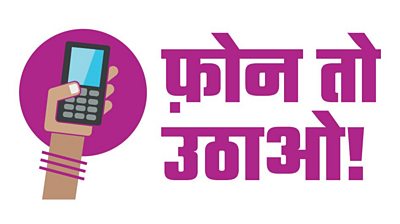
The narrator of the content is Khushi Didi – khushi means happiness and Didi is a salutation for a sister in Hindi. Khushi Didi is tenacious, hardworking, family-orientated, and helpful. Khushi Didi is socially responsible and always willing to try new things, learn and grow. She reflects the lives and aspirations of many rural and peri-urban women in collectives. She, too, faces common social stereotypes and barriers – for example. that the ghar ki bahu (housewife) should just focus on household chores. But Khushi never gives up or fears failure.
Through the video content for the WhatsApp chatbot learning aid and audio content for the IVR learning aid, Khushi shares her own experiences in how she overcame her barriers, and shares stories from other women who have found benefits to phone use for themselves and their families.
Each piece of content is designed to stimulate discussion – for example, about how mobile phones could potentially make their lives easier and help their families build better futures. Discussions will be followed by demonstrations of how to use specific, useful applications, and group-based practice sessions.
